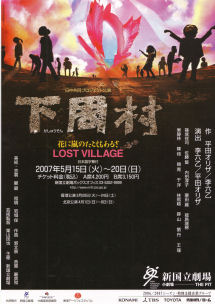|
|
| LOST VILLAGE |
2006/2007 SEASON PLAY
Japan-China Joint Project
LOST VILLAGE
THE PIT
|
STAFF |
| |
| Written by |
: |
Hirata Oriza, Li Liuyi |
| Directed by |
: |
Li Liuyi, Hirata Oriza |
| |
|
|
| Set & Costume Designer |
: |
Yan Long |
| Lighting Designer |
: |
Iwaki Tamotsu |
| Music |
: |
Guo Wenjing |
| |
|
|
| Artistic Director |
: |
Kuriyama Tamiya |
| Produced by |
: |
New National Theatre, Tokyo |
|
CAST |
|
Shinozuka Shoji, Sato Chikau, Uchida Junko, Awata
Urara, Nojima Mizuho
Guo Jinglin, Chen Wei, Han Qing, Yu Yang, Lin Xiyue, Xue Shan, Liu Dan, Wang Jin |
|
PERFORMANCES |
| |
May
2007 |
15 |
16 |
17 |
18 |
19 |
20 |
| Tue |
Wed |
Thu |
Fri |
Sat |
Sun |
| 1:00 |
|
|
|
|
X |
X |
| 2:00 |
|
|
X |
|
|
|
| 6:00 |
|
|
|
|
X |
|
| 7:00 |
X |
X |
|
X |
|
|
Doors
will open 30minutes before the opening of the performance. |
ADVANCE TICKETS |
| |
Available from Sunday 18 March,
2007 at 10:00am.
To order tickets, please call +81-3-5352-9999
(10:00am-6:00pm).
Internet ticket reservation available through the following Websites.(Japanese
only)
http://pia.jp/t
http://eplus.jp/
|
| TICKET PRICES (with tax) |
| Seat |
A |
B |
| Price(yen) |
4,200 |
3,150 |
|
|
*Seat Z(¥1,500): Sold at the NNTT
Box Office and some Ticket Pia outlets on the performance date.
One ticket per person. No phone reservations.
*Same day student tickets (50% off, except
Seat Z): Sold at the NNTT Box Office and some Ticket Pia
outlets on the performance date. One ticket per person. No phone
reservations. Students must bring a valid student ID. |
A borderless, universal multilingual drama from Asia!
In 2002 and 2005, the New National Theatre, Tokyo presented a joint Japanese-Korean production, Across the River in May, which won a number of theatrical awards in both countries and high critical praise (including the 2002 Asahi Performing Arts Award Grand Prix). Building on this experience and accomplishment, we are offering the world another Asian international collaboration through the network of theatre professionals in Japan and China.The two playwrights/directors collaborating on this production are the exceptional team of Hirata Oriza from Japan and Li Liuyi from China. With the acclaim won by Across the River in May, Hirata Oriza is a leading figure in the Japanese theatre world. Li Liuyi is the No. 1 star today in Chinese contemporary theatre and greatly trusted by Hirata as well. The play is co-produced by the National Theatre Company of China—the finest national theatre company in China—and the New National Theatre, Tokyo. Actors and actresses from both nations were selected for the cast. After performances at the Hong Kong Arts Festival and in Beijing in early spring, the play opens at the New National Theatre, Tokyo in May.
The play depicts the stir caused by the discovery of ancient relics in a remote village in China and the encounter between the Chinese and Japanese people who flock there because of the discovery. Focusing on the question of what history means to us, the play depicts in a comical and dynamic way relations between Japan and China today.
We are sure you will enjoy this borderless drama created though the interplay of the languages and cultures of the Japanese and Chinese performers.
|
|
<Synopsis>
The play takes place in a teahouse on the outskirts of a village in Sichuan Province, China. This village has ancient relics and has also produced fake cultural relics for over 300 years. Recently new real ancient relics have been discovered. This causes a big stir, and a wide variety of people gather at the teahouse: village residents, people from other parts of China who have heard about the discovery, an archeologist, as well as Japanese students and businesspeople. With the discovery of the new relics, people are questioning what it means for history to be rewritten. What is the difference between cultural treasures from a few thousand years ago and the fake relics created by the village residents 300 years ago? What is history? Contemporary relations between Japan and China are depicted through the encounter at the teahouse between the Chinese—who each have different values with the rapid development of their country—and the Japanese, who have come to this remote region of China because of the stir caused by the discovery.
|
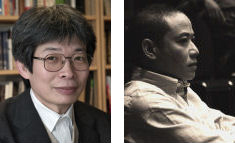 |
| Hirata Oriza |
Li Liuyi |
 |
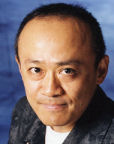 |
 |
 |
 |
| Shinozuka Shoji |
Sato Chikau |
Uchida Junko |
Awata Urara |
Nojima Mizuho |
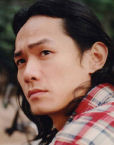 |
 |
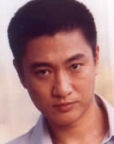 |
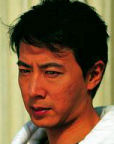 |
 |
| Guo Jinglin |
Chen Wei |
Han Qing |
Yu Yang |
Lin Xiyue |
 |
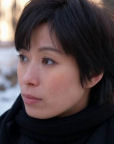 |
 |
| Xue Shan |
Liu Dan |
Wang Jin |
|
|
